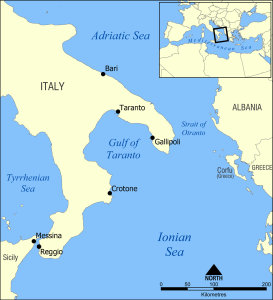Italy

The British West Indian battalions based in Europe moved to the port of Taranto in Italy for demobilisation. While the rest of the allied forces were jubilant, the British West Indies Regiment continued their labour intensive tasks under the command of the infamously harsh Colonel Willis. Jobs such as loading and unloading ships, and tedious, demeaning work such as cleaning the toilets of the white soldiers, became the lasting images of Europe for many of the volunteers.
At the same time their European counterparts were being granted a rise in pay as a result of their sterling efforts on the battlefield, a privilege that troops of colour did not receive, offending many and culminating in unrest among the 9th and 10th battalions in Cimino Camp in Taranto. On the 11th of December 1918, one month after the war had ended, Lieutenant Colonel Willis was assaulted and the 9th battalion , made up of 60 troops, rose up and mutinied against their oppressors. Chaos ensued, resulting in the death of a black non-commissioned officer who was shot. Mutiny spread to the 10th Battalion that refused to work. The chaos lasted for four days, an outburst of anger at their poor treatment and their simple desire to return home. All 60 men were prosecuted, one was executed at the hands of the firing squad and two others received sustained prison sentences.
The treatment of the volunteers who were awaiting repatriation was a cause for serious resentment within the British West Indies Regiment. Help seemed to come only from The West India Committee, which provided them with blankets and hot sauces and dealt with requests from their families back home to ensure that the volunteers got home safely. There were many cases of volunteers being sent to the wrong places because of the lack of knowledge about West Indian culture:
“During the last few years we have constantly been asked whether the inhabitants of those sea-grit isles spoke English: but the limit has surely been reached when two gallant young sailors from the West Indies were given railway passes from Crystal Palace to Trinidad and when a young West Indian Soldier was sent to Liverpool and put aboard an East Indian transporter!” West India Committee Circular 1918
There was a concern over pay for minority groups within the Empire, and the volunteers from all the battalions of the British West Indies Regiment were once again treated as second-class citizens. Although they were rejected from having pay rises at the same time as British troops, because “its depot was not in the United Kingdom”, the West India Contingent Committee successfully challenged this by gathering support from seven former West Indian Governors and a letter from Lord Milner, and they received equal pay by 1919.